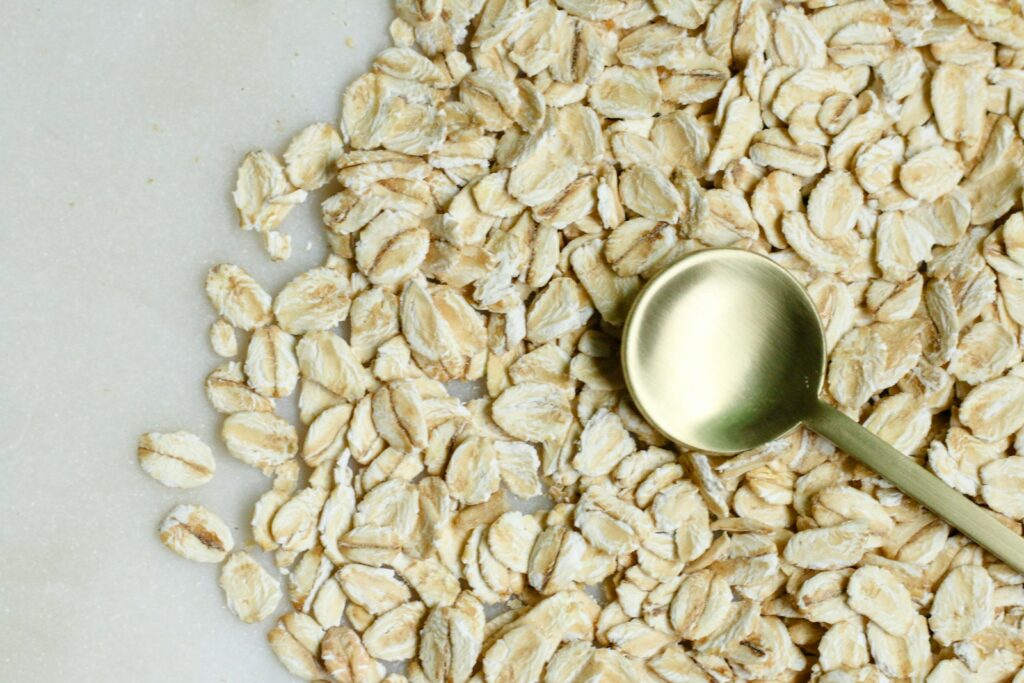These 10 Everyday Foods Were Once Used as Medicine—And Science Backs Their Benefits
Throughout history, many everyday foods were valued not just for nourishment but for their healing powers. Ancient cultures often turned to their kitchens—and gardens—for treatments before the rise of modern medicine. Today, scientists are discovering that many of these traditional remedies actually hold up under scrutiny. Thanks to rigorous research, we now know that some of the most common foods on our tables can deliver impressive health benefits. Here are ten familiar foods that were once used as medicine—and now have science to prove their worth.
1. Garlic

Garlic has a long history as a natural remedy for infections and immune support. Ancient healers recommended it for ailments ranging from the common cold to cardiovascular troubles. Today, science backs up many of these uses. Studies reveal that garlic contains powerful compounds with antimicrobial effects, helping the body combat bacteria and viruses. Additionally, regular consumption has been linked to lower cholesterol and improved heart health. Read more.
2. Honey

Revered by ancient Egyptians and Greeks, honey was a go-to remedy for wounds and sore throats. Its natural sweetness was secondary to its healing powers in traditional medicine. Modern research confirms honey’s potent antibacterial and anti-inflammatory qualities. Medical professionals now recognize its effectiveness for wound care and cough relief, especially in children. Manuka honey stands out for its high antibacterial strength, making it a focus of scientific studies. Read more.
3. Ginger

For centuries, ginger has been a staple in Asian medicine cabinets, revered for soothing upset stomachs and calming nausea. Today, scientific studies validate ginger’s effectiveness for reducing nausea, particularly for pregnant women and chemotherapy patients. Gingerol, the main bioactive compound, is credited with these benefits as well as notable anti-inflammatory properties. It’s no wonder ginger tea and chews remain popular remedies for motion sickness and digestive discomfort. Read more.
4. Turmeric

Turmeric has colored curries and healed ailments for centuries, particularly in Ayurvedic medicine. Traditionally prized for its ability to reduce inflammation and promote healing, turmeric’s value is now recognized by modern science. The secret lies in curcumin, the vibrant yellow compound responsible for much of turmeric’s power. Studies suggest curcumin may help manage chronic conditions like arthritis and metabolic syndrome, making this spice a true medicinal marvel. Read more.
5. Cinnamon

Cinnamon has a sweet reputation in traditional medicine, frequently used to ease coughs and soothe sore throats. Modern research has uncovered even more impressive benefits. Studies show that cinnamon can help regulate blood sugar levels, particularly in those with type 2 diabetes. Its rich antioxidant content is also being explored for its potential to protect cells from damage. Sprinkling a little cinnamon on your breakfast might offer more than just flavor—it could be a boost for your health. Read more.
6. Cranberries

Cranberries have a long-standing place in Native American medicine, especially for treating bladder and kidney concerns. Today, cranberry juice is widely recommended for urinary tract health. Scientific studies suggest that certain compounds in cranberries can help prevent some urinary tract infections by stopping bacteria from adhering to the urinary tract lining. While not a cure, regular cranberry intake may offer a simple, natural way to support urinary wellness. Read more.
7. Oats

For generations, oats have been prized for their gentle touch—both inside and out. Traditionally, they were used to soothe digestive issues and calm irritated skin. Modern research now confirms that oats can lower cholesterol and promote heart health when eaten regularly. Their anti-inflammatory compounds also make oatmeal baths a popular remedy for eczema and other skin problems. Whether in your breakfast bowl or your skincare routine, oats deliver time-tested and scientifically proven benefits. Read more.
8. Yogurt

Yogurt and other fermented milk products have been valued for their digestive benefits since ancient times. Today, science highlights the importance of probiotics—the beneficial bacteria found in yogurt—for maintaining gut health and strengthening the immune system. Consuming yogurt regularly can support a balanced microbiome and may even help with certain digestive disorders. This creamy staple isn’t just delicious; it’s a powerful ally for both your digestive and overall health. Read more.
9. Blueberries

Blueberries were treasured by Native peoples for their ability to support vision and fight off infections. Modern research now praises blueberries for their high levels of antioxidants, particularly anthocyanins, which help protect cells from damage. These antioxidants have been linked to better brain function and a healthier cardiovascular system, making blueberries a smart addition to any diet. Their combination of sweet flavor and health benefits has stood the test of both tradition and science. Read more.
10. Apple Cider Vinegar

Apple cider vinegar has a long history as a folk remedy for easing indigestion and fighting infections. In recent years, research has explored its ability to help regulate blood sugar after meals and its mild antimicrobial effects. While more studies are needed, some evidence suggests that adding a splash of apple cider vinegar to your routine may offer subtle health perks. This tangy tonic continues to be popular for both culinary and medicinal uses. Read more.
Conclusion

The ancient wisdom behind these everyday foods is increasingly validated by modern science. As research continues to uncover their powerful health benefits, it’s clear that food can be more than just fuel—it can be a form of preventive medicine. Exploring these natural remedies may offer simple, accessible ways to support long-term well-being.
Disclaimer

This article is for informational purposes only and is not a substitute for professional medical advice.
Always consult your healthcare provider before making changes to your diet or health routine.





